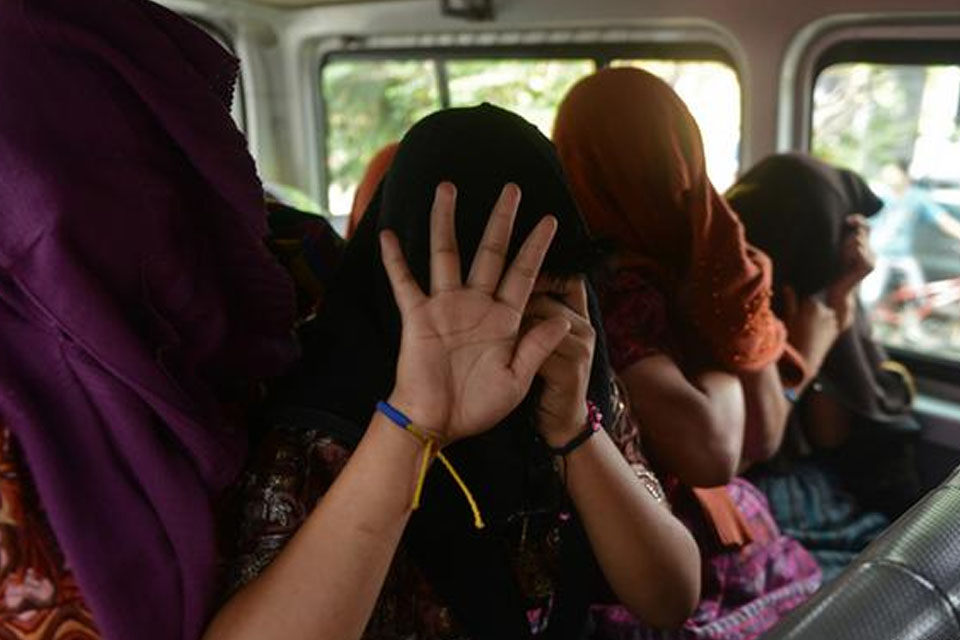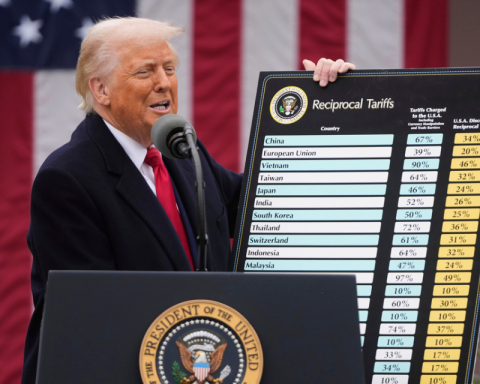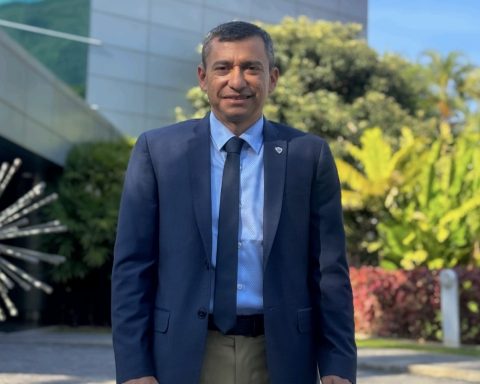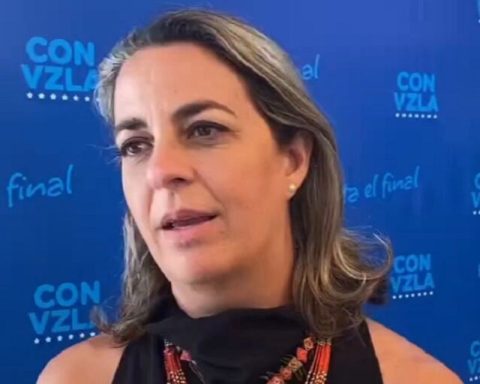The shortcomings of the Venezuelan State and the complex humanitarian emergency increased the facilities for criminal gangs to increase human trafficking, inside and outside the country. According to figures from Colombia, 74% of Venezuelan victims were captured by fraudulent job offers
High salaries in positions such as waiters abroad, promises to be a model with travel and paid expenses. Under deceptive offers, criminal gangs and networks dedicated to human trafficking capture their potential victims within Venezuela to submit them —in some cases within the country— to slavery or forced servitude, sexual exploitation or other forms of forced labor. In particular, border states such as Sucre or Apure are niches for these groups.
This was explained by the lawyer Norma Ferrer, an expert in human trafficking at the NGO International Cooperation (Coopi), during a discussion on human trafficking in Venezuela, organized by the Human Rights Center of the Metropolitan University (HRC Unimet).
According to data collected by Coopi in August 2022, of identified trafficking victims between 75% and 80% are women, aged between 13 and 35 years. Most of them are recruited for servitude or domestic work.
In addition, in the state of Apure, Ferrer pointed out, there is forced begging of boys and girls, especially from indigenous ethnic groups. This type of begging, noted Victoria Capriles, director of the CDH Unimethave also been identified in the states of Zulia and Bolívar.
In the case of Sucre state, as it has maritime routes with Trinidad and Tobago, the crisis caused criminal networks to seize this area and use it for the smuggling of migrants and human trafficking.
“Many of these people who are smuggled are also victims of trafficking, but they are criminalized. In Trinidad and Tobago there is tourism and houses of sexual exploitation. It is presumed that some missing persons may be in these places, but there has not been an exhaustive investigation in these cases,” the specialist highlighted.
Most of the victims come from communities that are economically precarious or isolated because there are no adequate reporting, protection or medical assistance services. Boys and men are also victims of trafficking: Coopi identified that 15% were subjected to forced labor. In some cases they are sent to the mines of Bolívar state or Caribbean islands for this.
In Sucre state, the forms of recruitment do not always go through the gangs or networks dedicated to these crimes. “We saw a lot of presence of family traffickers, mothers, uncles, cousins, who sell their relatives (…) There are also young people who know that they are going to prostitute themselves, but consent is null when they are victims of sexual exploitation.”
*Read also: SPECIAL | Disappearing at sea: a search without a compass
Ferrer pointed out that one should not always be willing to migrate to be exposed to trafficking networks. “During the pandemic, recruitment through social networks increased through fraudulent job offers, false modeling agencies or beauty contests. Be aware of those wonderful offers, which are disguised as large salaries or benefits, “warned the specialist.
In those states where Coopi have been able to intervene, highlighted the lawyer, they have verified that the victims have different regions of origin: a percentage is represented by people from the same state (Sucre and Apure), nearby entities such as Delta Amacuro and Monagas, as well as from the center west of the country (Lara, Miranda, Carabobo, Barinas).
* Also read: Beatriz Mora: “In Táchira they hide statistics of gender violence and trafficking”
The organization also identified as modus operandi the recruitment of victims through parties in schools; while in the state of Sucre it was found that the gangs place Lgbti people under the promise, in the case of trans people, of paying them in full for the transition surgery or hormone replacement therapy.
Norma Ferrer pointed out that the Venezuelan State has several legal shortcomings to deal with this transnational crime: there are problems to identify the victims and the crime itself, there is a structural failure of the justice system, a shortage of officials dedicated to it or involved with these armed gangs, as well as the lack of official figures from the Public Ministry or the Ministry of the Interior and Justice.
Victims of trafficking in Colombia
Christian Filip, coordinator of the Lawyers Without Borders Canada projects, Colombia office, pointed out that it must be borne in mind that human trafficking “is a violation of human rights that interrupts the life project of the victims. It is necessary that the States not only have the approach of sentences, but of reparation to the victims.
During her speech at the discussion, she highlighted that there are patterns of objectification and hypersexualization of women in some countries that favor trafficking, as well as precarious economic conditions.
According to figures provided by the Colombian authorities themselves, 181 people were victims of trafficking in that country in 2020, 76 of them were Venezuelan nationals; while in 2022 111 victims were identified, of which 19 are Venezuelan.
74% of Venezuelan victims were captured by fraudulent job offerssaid Filip, who highlighted the Yolanda case, as a Venezuelan migrant who was a victim of sexual exploitation in Colombia is known under a deceptive job offer to sell coffee in the city of Cúcuta, Norte de Santander department, on the border with Venezuela.
On the right, Victoria Capriles, executive director of CDH Unimet. To the center Christian Filip, coordinator of Lawyers Without Borders projects. On the left, the lawyer Norma Ferrer, a specialist in human trafficking at Coopi
The woman went to the Red Cross in search of help and the complaint was taken to the Prosecutor’s Office of that country, which dismissed the crime of human trafficking and only admitted that of “induction into prostitution.”
In October 2021, after a review of the case, the Constitutional Court of Colombia ruled against the Colombian State and requested the creation of a protocol for the identification and care of victims, as well as providing comprehensive protection and assistance to victims when signs of trafficking are detected, without the need for a criminal investigation of the crime.
The representative of Lawyers Without Borders also highlighted that the networks of traffickers in Colombia were specifically looking for Lgbti people and recruited them with deceptive offers of virtual sex work (webcam cameras), but the conditions offered change along the way and they are subjected to prostitution.
college students exposed
Victoria Capriles, executive director of CDH Unimet, affirmed that in the context of the complex humanitarian emergency and the Venezuelan mobility crisis, there are more and more cases of victims of human trafficking, especially young people.
“The State must recognize trafficking as a problem and take actions to protect the population. In Venezuela, due to a lack of institutionality and the humanitarian emergency, actions against trafficking have been put aside. Civil society organizations have tried to cover the shortcomings, but with the complexities of the case,” said Capriles.
In 2021, CDH Unimet conducted a study on the vulnerability in recruiting students from that university. At least 74% of those consulted stated that they had repeatedly witnessed deceptive offers on social networks, which could be associated with this crime.
Another of the results of the study is that 72.1% of the students acknowledged that they had heard little or something about human trafficking, and 17% had doubts in identifying the forms related to it.
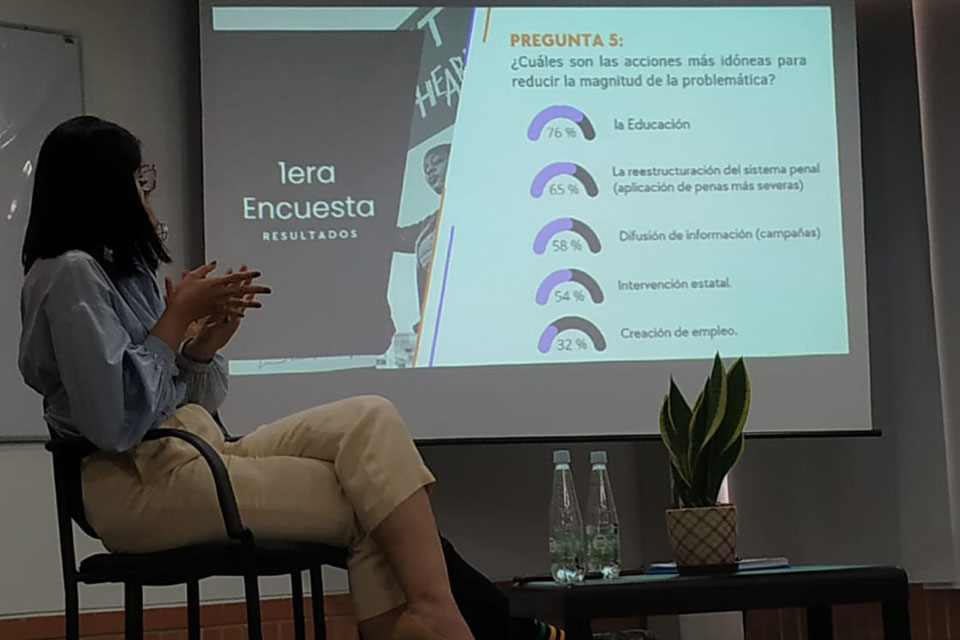
Unimet prepared a study in 2021 to assess the vulnerability of its students to human trafficking networks.
Although 80% of the students demonstrated that they were familiar with the most common crimes associated with human trafficking (sexual exploitation, slavery, forced labor), only 29% identified that accepting deceptive job offers could lead them to trafficking situations.
Also, 14.6% of the students reported having received advantageous job offers in recent years, such as pyramid schemes, modeling offers abroad, waitressing jobs in Trinidad or Spain with high benefits, escort proposals in Europe. . The specialist pointed out that, within these forms of recruitment that traffickers have developed, is that of inciting the person to take others, which also commits them to the crime.
*Read also: UN Report: Victims rely on self-rescue due to little response against trafficking
Post Views: 243
